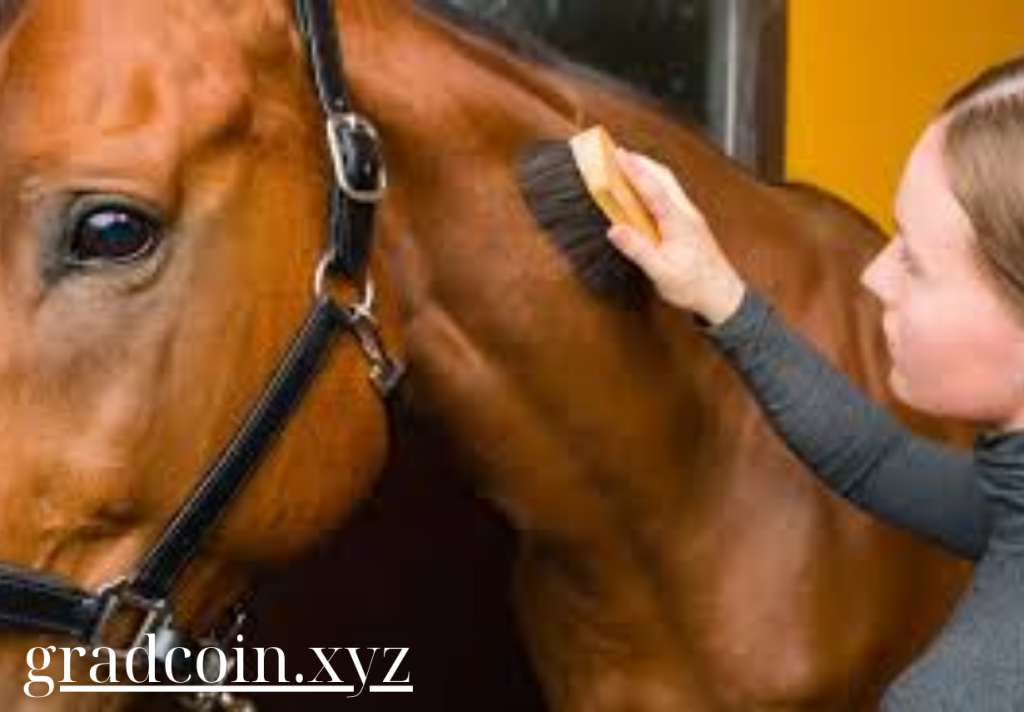Polo Horses & Equipment
Polo Horse Care Tips: Essential Advice for Maintaining Peak Equine Health
olo is a fast-paced and demanding sport that requires horses to be at their peak physical condition. Polo ponies, known for their speed, agility, and endurance, need specialized care to ensure they remain healthy, strong, and capable of performing at their best on the field. Proper care is not just about feeding and grooming; it encompasses every aspect of their well-being, from nutrition and exercise to veterinary care and mental health. Here are essential polo horse care tips to help maintain the peak health of your prized equine athletes.
1. Balanced Nutrition: Fueling Performance
A balanced and nutrient-rich diet is the foundation of a healthy polo horse. Given the intense physical demands of polo, these horses need a diet that supports high energy levels while maintaining optimal body condition.
Key Nutritional Elements:
- High-quality forage: Hay and pasture provide essential fiber, which is crucial for healthy digestion. Make sure the forage is clean and free of dust or mold to prevent respiratory issues.
- Grains and concentrates: Polo horses require additional energy sources, often provided through grains such as oats or barley. Ensure the feed is balanced with essential vitamins and minerals like calcium, phosphorus, and magnesium.
- Electrolytes: Intense activity leads to significant electrolyte loss through sweat. Supplementing with electrolytes can help maintain fluid balance and prevent dehydration during matches.
- Protein and fats: Protein is vital for muscle recovery, while fats, like flaxseed or vegetable oil, provide slow-burning energy that can sustain horses through long periods of exertion.
Tip: Work with an equine nutritionist to customize a feeding plan based on your horse’s workload, age, and overall health.
2. Regular Exercise and Conditioning
Polo ponies need to be agile, fast, and have high endurance, making regular exercise and conditioning essential. A structured fitness program should focus on building strength, speed, and stamina without overworking the horse.
Key Exercise Routines:
- Cardio and stamina training: Incorporate long-distance trotting and cantering sessions to improve endurance. Interval training with short bursts of speed can mimic the intensity of a polo match.
- Strength training: Hill work and resistance exercises help build muscle strength, which is vital for fast acceleration and sudden stops during a game.
- Flexibility and agility drills: Exercises like pole work, bending, and sharp turns improve the horse’s agility and ability to change direction quickly on the field.
- Rest and recovery: Adequate rest between training sessions is crucial to prevent overtraining and injuries. Make sure to include rest days and lighter workout sessions to allow for recovery.
Tip: Consult with a professional polo trainer to develop a tailored exercise program that aligns with your horse’s fitness level and the season’s schedule.
3. Hydration and Heat Management
Polo ponies exert immense energy during training and matches, especially in hot weather, making hydration and temperature management crucial to their health.
Tips for Hydration and Cooling:
- Frequent water breaks: Ensure your polo pony has access to fresh water at all times, especially during matches and intense training sessions. Horses can lose large amounts of fluids through sweat, and dehydration can lead to heat stress and muscle cramps.
- Post-exercise cooling: After each session, cool down your horse by hosing them off with cool water, paying special attention to areas like the chest, neck, and legs. Use a sweat scraper to remove excess water and allow for faster cooling.
- Electrolyte supplements: During periods of intense activity or hot weather, add electrolytes to your horse’s water or feed to replace lost salts and maintain proper hydration levels.
Tip: Monitor your horse for signs of heat stress, such as excessive sweating, lethargy, or heavy breathing, and take immediate action to cool them down if necessary.
4. Hoof Care: A Strong Foundation for Performance
The health of your horse’s hooves is critical for maintaining mobility and preventing lameness. Polo ponies, with their frequent stops, turns, and galloping, require extra attention to hoof care.
Essential Hoof Care Tips:
- Regular farrier visits: Schedule a visit with a farrier every 4 to 6 weeks to maintain healthy hooves. Polo ponies often require specialized shoeing for added grip and stability on the field.
- Hoof cleaning: Clean your horse’s hooves daily to remove debris, rocks, and dirt that could cause infections or discomfort. Look for signs of thrush or other infections and address them promptly.
- Proper shoeing: Polo ponies may benefit from specific shoe designs that enhance traction, protect the hooves from wear, and offer additional support during fast turns and sprints.
Tip: Discuss your horse’s needs with your farrier to ensure they receive the best possible care for their hooves based on their activity level and the surfaces they play on.
5. Veterinary Care: Preventive Measures and Regular Checkups
Regular veterinary checkups are essential to maintaining the overall health of your polo pony. Preventive care, including vaccinations, dental work, and parasite control, helps avoid illnesses that could affect performance.
Key Veterinary Care:
- Vaccinations: Ensure your horse is up-to-date on essential vaccinations, including those for equine influenza, tetanus, and West Nile virus, especially if your horse frequently travels for matches.
- Dental care: Regular dental checkups ensure your horse can chew and digest their food properly. Sharp or uneven teeth can cause discomfort, leading to weight loss or reduced performance.
- Parasite control: Work with your vet to create a parasite control program that includes regular deworming based on fecal egg counts and your horse’s environment.
Tip: Schedule routine checkups with your vet to catch potential health issues early and keep a close eye on your horse’s physical condition throughout the season.
6. Mental Wellness: Keeping Your Polo Pony Focused and Calm
A polo pony’s mental health is just as important as its physical condition. Horses can become stressed or anxious during training, travel, or matches, which can negatively impact their performance.
Tips for Managing Mental Wellness:
- Routine and consistency: Horses thrive on routine, so try to keep a consistent schedule for feeding, grooming, and training. This helps reduce anxiety and allows your horse to feel more secure.
- Rest and downtime: Provide your polo pony with plenty of time to relax and recover between matches and training sessions. Access to pasture and turnout time can help reduce stress and keep them mentally sharp.
- Positive reinforcement: Use positive reinforcement during training sessions to build trust and confidence in your horse. Rewarding good behavior encourages focus and a positive attitude toward work.
Tip: Watch for signs of stress or anxiety, such as restlessness, loss of appetite, or reluctance to work. Work with a trainer or equine behaviorist if needed to address any mental health concerns.
Conclusion: Comprehensive Care for Peak Performance
Maintaining the peak health of your polo pony requires a comprehensive approach that includes proper nutrition, conditioning, hydration, veterinary care, and mental wellness. By investing time and effort into each aspect of their care, you can ensure your horse remains healthy, happy, and ready to perform at the highest level. With the right care routine, your polo pony will be able to thrive both on and off the field, giving you the competitive edge you need.

